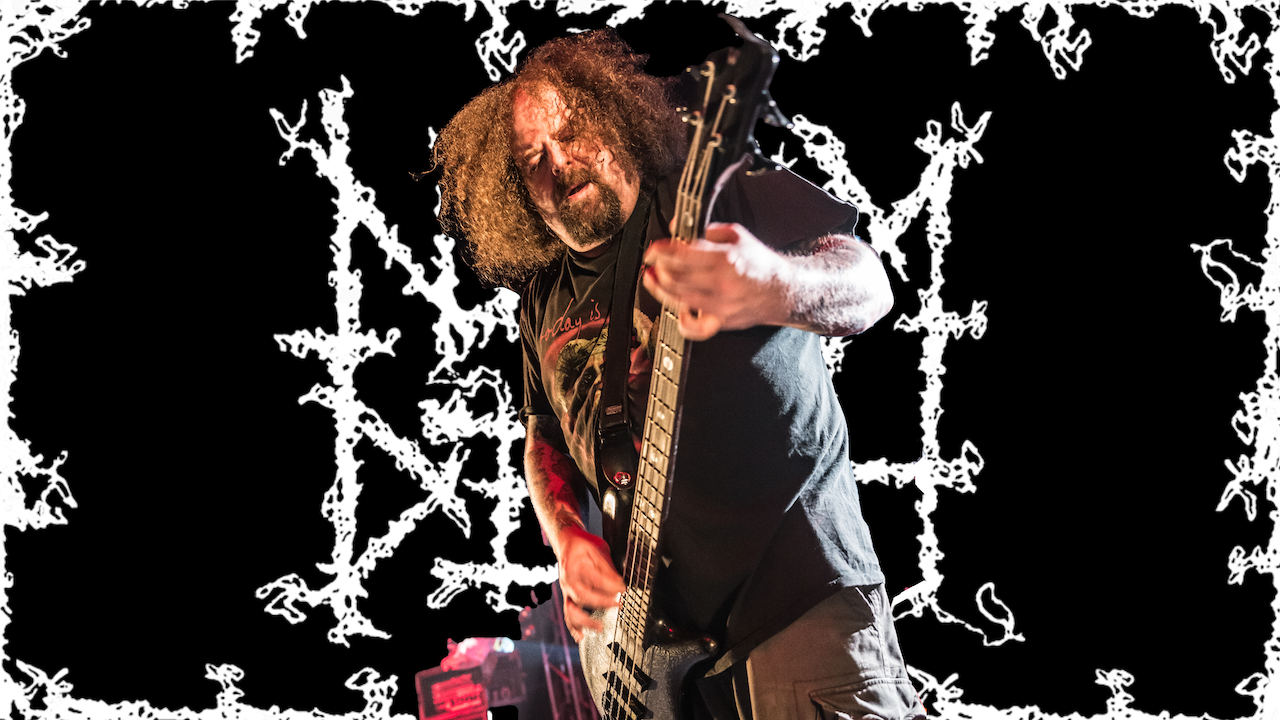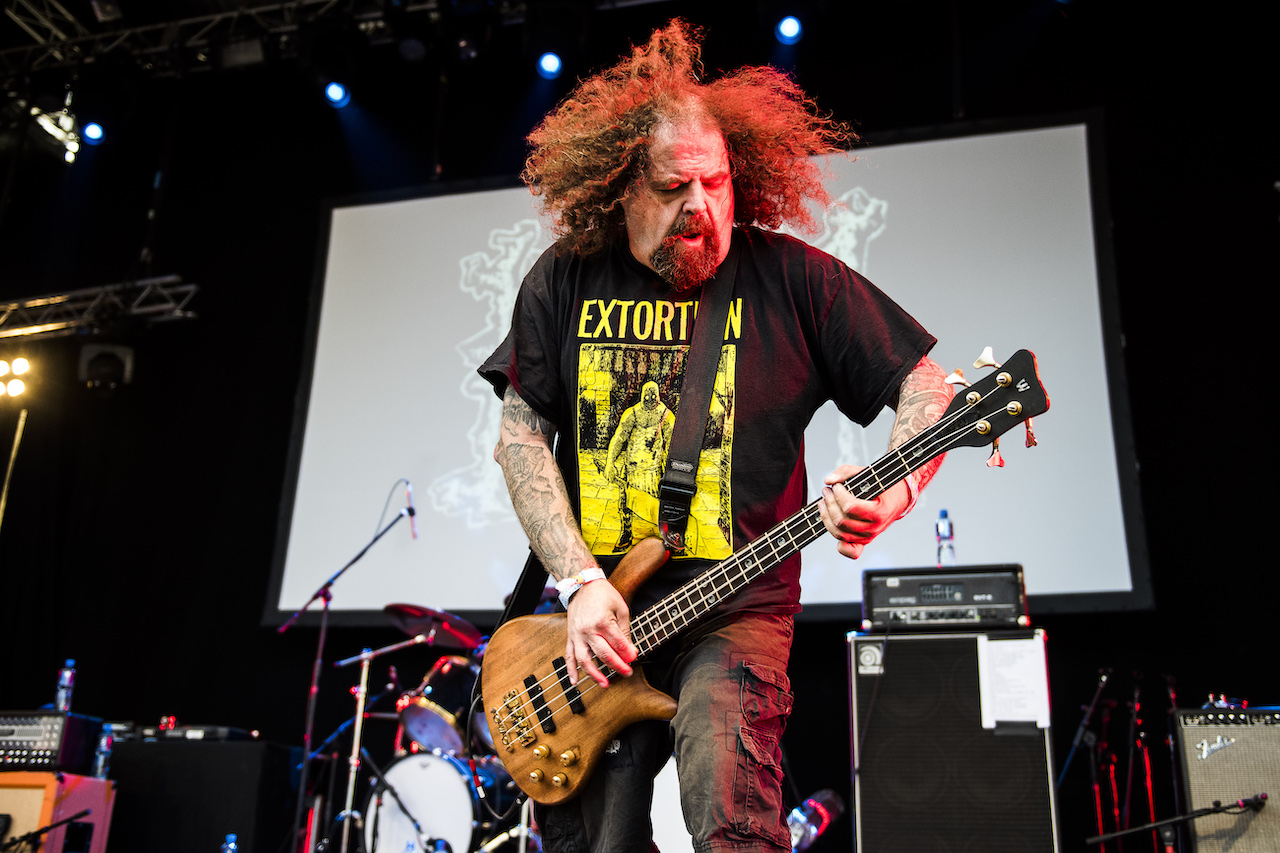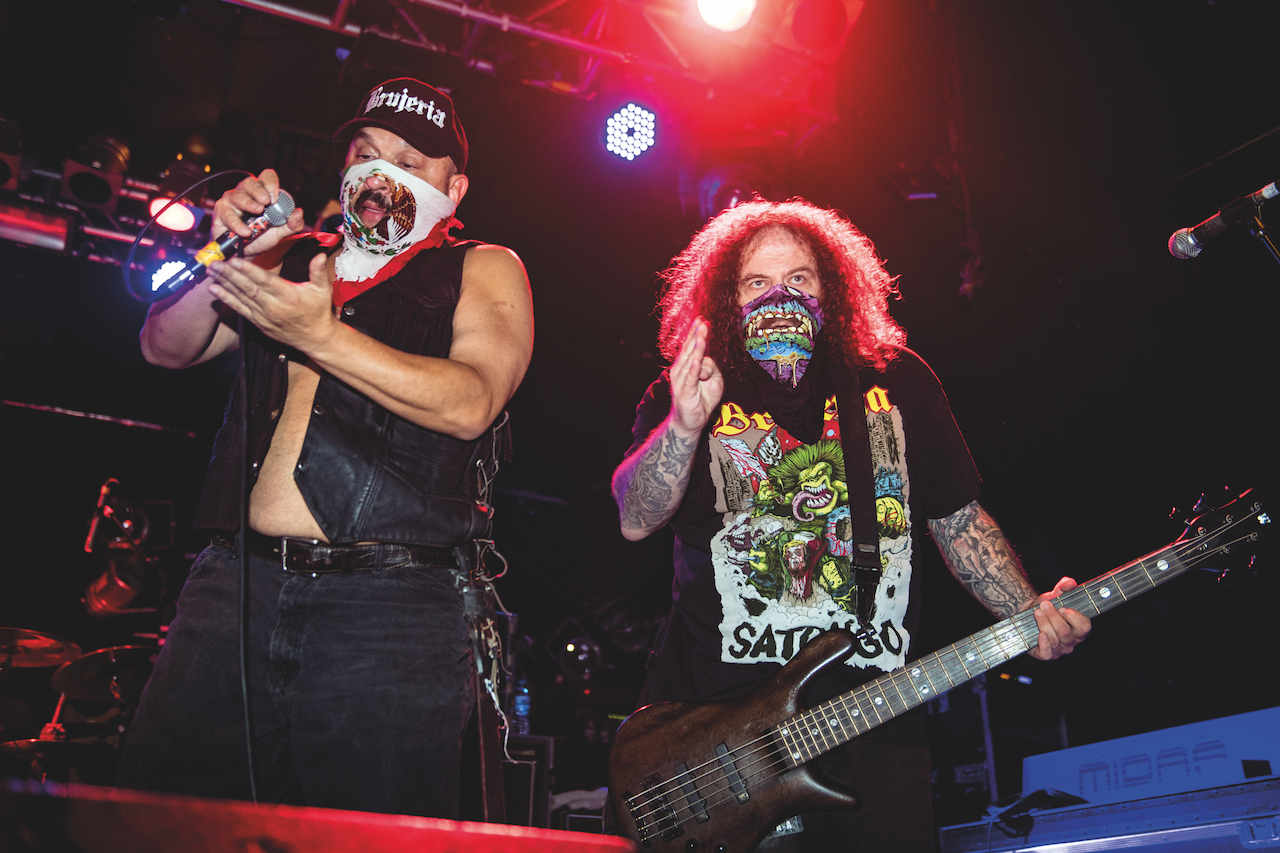“I was just trying to play distorted bass – everything had to be on 11!” Napalm Death bassist Shane Embury on writing riffs and fighting nazis
In an exclusive extract from Shane Embury’s new autobiography, the veteran Napalm Death bassist reveals the inspirations behind his monstrous tones

All the latest guitar news, interviews, lessons, reviews, deals and more, direct to your inbox!
You are now subscribed
Your newsletter sign-up was successful
Napalm Death, first a punk-inspired grindcore band and later a more fully-evolved death metal outfit, pioneered a particularly British form of extreme music in the Eighties. Initially dismissed as something of a novelty thanks to songs such as the one-second You Suffer, as well as their bestial vocals and relentless blastbeats, Napalm have become revered for their strong political views and perseverance in the face of all the odds.
Bassist Shane Embury is one of the best-known musicians in extreme metal, having joined Napalm in 1987, six years after they formed: he’s now their longest-serving member. He’s also played in bands such as Lock-Up, Venomous Concept and Brujeria over the years, building a reputation for huge, often distorted bass parts that give the riffs a fearsome bottom end.
In this extract from Embury’s new book Life...? And Napalm Death, published this autumn by Rocket 88, he remembers how his bass career started – and how a bit of heartfelt appreciation from a Smashing Pumpkin helped him along the way.
“Me and my friends Wayne Aston and Mike Clarke had all got guitars at one point or another, so of course everybody wanted to be the guitarist. I had this cheap thing, but I didn’t really take to it. I could string together a few simple riffs, but that was it. Wayne was already playing guitar, and Mike ended up playing bass and singing, so I said, ‘Well, I’ll play drums then’.
“I’d always liked hitting things, going right back to my grandma’s buckets when I was a kid. The only problem was that I didn’t actually have a drum kit. I remember plucking up the courage to ask my grandpa if I could borrow £100 from him to buy one. I was shitting myself, because he was quite a standoffish man, but he gave it to me. And he never, ever asked for it back.
“I never bothered with drum lessons. I just listened to my Slayer and Venom records and thought, ‘How do they play so fast?’ My kit was set up in my parents’ living room, behind the sofa – couch, TV, drumkit in the corner. I could only practice at certain times because it was just so loud. The neighbors on one side were fine. The neighbors on the other side, who were actually my dad’s friends, were always complaining. I’m not surprised, in fairness...
“That’s when Mickey [Harris, drummer] called me and asked if I wanted to join on bass. Funnily enough, Nik Bullen [vocals, bass] had actually asked if I would play guitar after Justin [Broadrick, guitar] had left eight or nine months earlier. At that point, I really wasn’t sure I could do it. I can play guitar reasonably well now, but it still stresses me out. Back then, there was no chance and I basically bottled it. It’s one of my big regrets. I didn’t even have to think about it. ‘I’m not going to make the same mistake twice,’ I told him, and that was it. I was Napalm Death’s new bass player.
All the latest guitar news, interviews, lessons, reviews, deals and more, direct to your inbox!

“I was finding my way as a musician. I was still influenced by the bands I was discovering through the tape-trading scene: ‘That’s great, I like that riff, let’s write a riff like it’. The song ‘Unchallenged Hate’ was inspired by a couple of riffs by the death metal band Massacre. And a lot of the bands I was listening to, like Repulsion, had a really abrasive bass sound. I was just trying to emulate that distorted bass. Everything had to be on 11. When I look back at the riffs I wrote for Napalm compared to the riffs Bill [Steer, guitar] wrote, there’s a purity to his stuff. I can see why it made sense for a certain riff to end where it did. Mine would have these strange notes in them, but that was just a lack of musical knowledge on my part.
“When the Smashing Pumpkins played in Birmingham, I ended up talking to their bass player, D’Arcy Wretzky, while she was having a cigarette outside. She said, ‘Utopia Banished [Napalm’s 1992 LP], I like that album’. I just said, ‘Are you serious?’ That was such a big deal because I loved the Smashing Pumpkins.
“A few years later we toured with a hardcore band called Sheer Terror. They’re great guys but they get some dodgy people at their shows. We were in Pennsylvania, playing this pretty packed club, when the local Nazi gang turned up. You could see these 400 or so metal kids in the crowd surrounded by this ring of Nazis. The older ones were shoving the young skinheads into the crowd to start fighting.
“We were pissed off, so we came on and opened up with ‘Nazi Punks Fuck Off’ [by the Dead Kennedys]. And then we did it again straight after, for good measure. That didn’t go down well with the Nazis. We played another couple of songs and they rushed us. We had to run backstage and barricade the door because they were trying to kick it down. It was getting properly hairy—I thought they were going to get through. The guys from Sheer Terror were laughing: ‘We told you not to do that, you crazy bastards’. I was just thinking, ‘Why did we do that?’

“Sometimes it’s not just the fans who give us aggro. We played Russia for the very first time in 1991, and one of the Russian bands we were with... well, I’m not sure they were Nazis, but they were saying some dodgy stuff. There was a bit of tension, but nothing really happened. A couple of years later we were playing a festival in Estonia and this Russian band were there too. I’m not entirely sure what went on, but I saw the singer saying something to Barney [Greenway, Napalm singer] and then going for him. I’d been drinking Estonian beer all afternoon and I was up for a ruck, so I lunged out the dressing-room window and jumped on this guy.
“I’m not a fighter, but I started having a go at him—at which point their guitarist grabbed me around the neck. I’m not clear on what happened next but apparently I started going blue, so Mitch [Harris, guitar] jumped on him and began battering him. For some reason the prog band Marillion were on the bill, and I remember their singer, Fish, laughing at me afterwards: ‘You mad Brummie bastard!’
Preorder Shane’s book at rocket88books.com
Joel McIver was the Editor of Bass Player magazine from 2018 to 2022, having spent six years before that editing Bass Guitar magazine. A journalist with 25 years' experience in the music field, he's also the author of 35 books, a couple of bestsellers among them. He regularly appears on podcasts, radio and TV.

